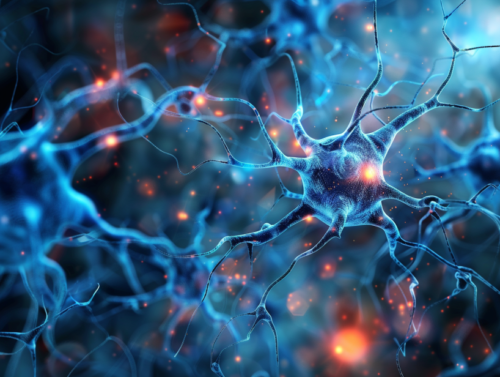The battle against addiction, whether related to substances like alcohol and nicotine or behaviors such as gaming, represents a significant challenge in both mental health and medical fields. Recent insights into the mechanisms of weight loss peptides, such as semaglutide, tirzepatide, and retatrutide, have discovered their potential beyond traditional boundaries of obesity and diabetes management. By targeting the brain’s dopamine reward system, these peptides open new avenues in treating various forms of addiction, offering hope for a more holistic and effective approach to recovery.
The Role of Dopamine in Addiction
Dopamine, a key neurotransmitter in the brain’s reward system, plays a key role in the development and persistence of addiction. Addictive substances and behaviors stimulate the release of dopamine, reinforcing the activities that lead to this “reward,” thereby creating a cycle of dependency. Breaking this cycle requires not only addressing the physical aspects of addiction but also the neurological pathways that sustain it.
How GLP-1 Agonist Peptides Can Help
Semaglutide, tirzepatide, and retatrutide, through their action on GLP-1 receptors and beyond, have shown promising effects in modulating the dopamine-driven reward system implicated in addiction. Here’s how they can help in treating various addictions:
Modulating the Reward System
By influencing the dopamine pathways, weight loss peptides can help reduce the rewarding sensation associated with addictive substances or behaviors. This reduction can decrease the desire or compulsion to engage in the addictive activity, making it easier for individuals to abstain.
Reducing Cravings
One of the hallmarks of addiction is intense cravings for the substance or behavior. Weight loss peptides can help alleviate these cravings, reducing the likelihood of relapse.
Improving Behavioral Control
Addictions often erode an individual’s ability to control impulses. By resetting aspects of the brain’s response to rewards, these peptides may enhance self-control and decision-making, empowering individuals to resist addictive triggers.

Supporting Overall Mental Well-being
Addiction frequently coexists with other mental health issues, such as depression and anxiety. The beneficial effects of these peptides on mood and anxiety, through improved metabolic health and direct action on neurotransmitter systems, can support broader mental health recovery.
Weight loss peptides have huge potential to help individuals break free from the cycle of addiction offering a new hope and greatly improving outcomes for those struggling with addiction.
References:
Eren-Yazicioglu CY, Yigit A, Dogruoz RE, Yapici-Eser H. Can GLP-1 Be a Target for Reward System Related Disorders? A Qualitative Synthesis and Systematic Review Analysis of Studies on Palatable Food, Drugs of Abuse, and Alcohol. Front Behav Neurosci. 2021 Jan 18; 14:614884. doi: 10.3389/fnbeh.2020.614884. PMID: 33536884; PMCID: PMC7848227.
Jensen ME, Galli A, Thomsen M, Jensen KL, Thomsen GK, Klausen MK, Vilsbøll T, Christensen MB, Holst JJ, Owens A, Robertson S, Daws L, Zanella D, Gether U, Knudsen GM, Fink-Jensen A. Glucagon-like peptide-1 receptor regulation of basal dopamine transporter activity is species-dependent. Neurochem Int. 2020 Sep; 138:104772. doi: 10.1016/j.neuint.2020.104772. Epub 2020 May 25. PMID: 32464226; PMCID: PMC7452124.
Zhu Changliang , Li Hailiang , Kong Xuerui , Wang Yezhong , Sun Tao , Wang Feng, Possible Mechanisms Underlying the Effects of Glucagon-Like Peptide-1 Receptor Agonist on Cocaine Use Disorder, Frontiers in Pharmacology, VOL 13, 2022, https://www.frontiersin.org/journals/pharmacology/articles/10.3389/fphar.2022.819470, DOI=10.3389/fphar.2022.819470, ISSN=1663-9812


